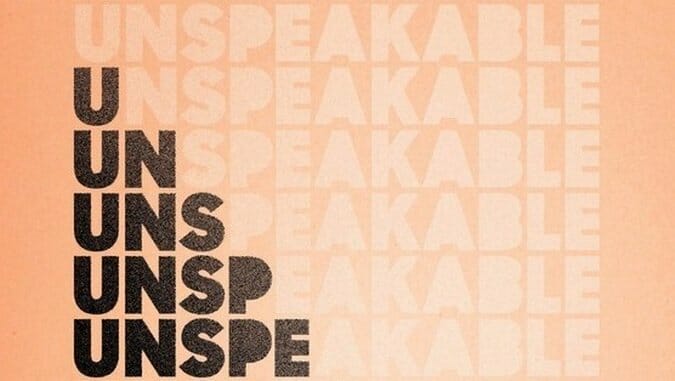The Unspeakable and Other Subjects of Discussion by Meghan Daum

As a graduate teaching assistant at the University of North Carolina Wilmington—a school teeming with Huffy beach cruisers and plastered in Salt Life decals—I looked forward each year to a lecture delivered by author David Gessner to the undergraduate creative writing students. He slicked back his hair, wore a frumpish tweed jacket and wire-rimmed glasses. He spoke with a geekish timbre and read verbatim from his yellow legal pad. “I’m not used to public speaking,” he would say. “I prefer the cloister of library cubicles.”
These students didn’t know Gessner, didn’t know he was a prolific essayist and iconoclastic nature writer. Most of them weren’t paying attention—not yet—and the few copious note-takers among them acted too polite to giggle. “My name is assistant professor David Marshall Gessner, Jr., and I’m here to deliver a lecture on the topic of transformation for the fulfillment of the pedagogical requirements of this course, Creative Writing 201.”
He began with ancient Greek and Roman lit, the transformation of gods to humans, humans to gods, gods to animals. While he spoke, he slowly began dropping his notes to the floor, loosening his tie, unbuttoning his collar. Five minutes later, after referencing the The Wolf Man and then The Strange Case of Dr. Jekyll and Mr. Hyde, half his wardrobe lay on the floor. He started breathing heavily, emitting short grunts. Students now gawked at Gessner like they had gawked at their iPhones just moments before.
“How can we break society’s bonds?” he asked. “How can we become the animals we are? I want to sense the powerful animal I am and rip into life!”
By the end of the lecture, a 50-year-old man stood shirtless and shoeless on top of a desk with his fists in the air—a wholly different beast than the bookish academic that first approached the lectern. Sure, the stunt was hammy, a bit over the top, but it caught the attention of a lecture hall filled with 19-year-old beach bums, and he made his points: that great personal essays show a transformation—be it sweaty or subtle—in thought if not in action. And that a narrator’s outlook should not be the same in the beginning as in the end. And that at some moment, the narrator should pivot to see his or her subject anew, and in that newness, feel something raw.
In her latest collection of personal essays, The Unspeakable and Other Subjects of Discussion, author Meghan Daum toys with that notion of transformation. She finds varying degrees of success, sometimes approaching the pivot only to swing back to the starting line, sometimes barely shifting at all, and sometimes crossing over completely, wrapping the essay with a bow-tie revelation. It is a book, she writes, “about the ways that some of life’s most burning issues are considered inappropriate for public or even private discussion” and “that teach no easy lessons and therefore are often elbowed out of sight.”
Writing with the intelligence and conversational wit readers have come to expect from Daum as a celebrated Los Angeles Times columnist, the author wrestles with a slew of disparate and sometimes uncomfortable topics, everything from her own near-death experience to her self-appointed “honorary dykedom” to what she calls “The Joni Mitchell problem.” Whether or not readers detect a transformation in these essays, which roam and overlap and often swallow their own bait, readers will likely declare allegiance to Daum anyway, enchanted by a voice that seems as if she’s invited you, you specifically, to the after party.
She begins the collection’s first essay, “Matricide,” for example, with an open door to personal information, a beckoning to step inside the Daum family circle: “People who weren’t there like to say that my mother died at home surrounded by loving family,” she writes. “This is technically true, though it was just my brother and me and he was looking at Facebook and I was reading a profile of Hillary Clinton in the December 2009 issue of Vogue.” The essay proceeds to explore Daum’s relationship with her mother, whom she viewed as a fraud and whom she begrudged “her lifetime of neediness.” Daum writes candidly of her family’s “fragile maternal line,” approaching topics like dying and dementia and her own miscarriage without hesitation, eschewing the hushed tones and baroque lyricism that seem so often to accompany these and other sobering topics.
-

-

-

-

-

-

-

-

-

-

-

-

-

-

-

-

-

-

-

-

-

-

-

-

-

-

-

-

-

-

-

-

-

-

-

-

-

-

-

-








































